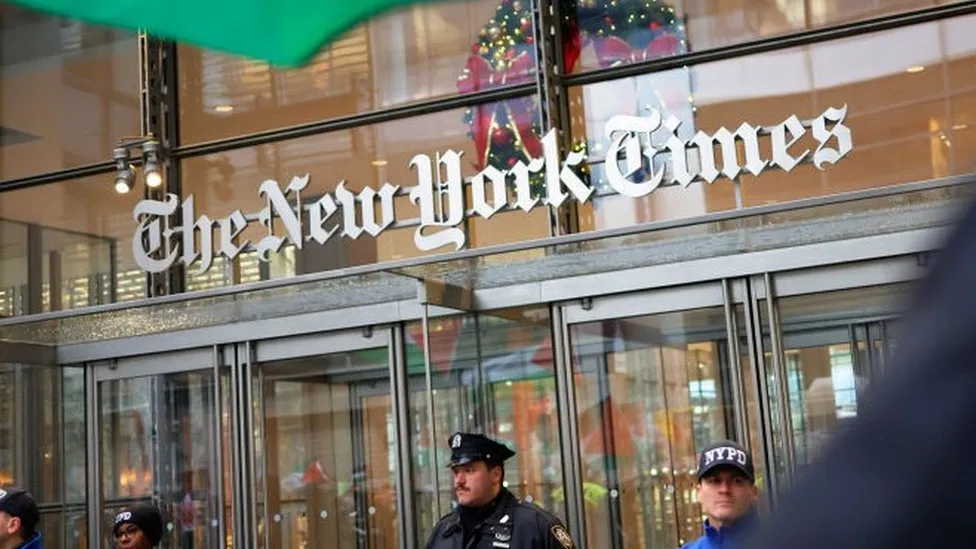The New York Times, a prominent US news organization, has filed a lawsuit against OpenAI, the owner of ChatGPT, and Microsoft, alleging copyright infringement in training the language model.
The lawsuit contends that ChatGPT, along with other large language models (LLMs), unlawfully used “millions” of articles from the New York Times without permission, resulting in damages amounting to “billions of dollars.”
The lawsuit argues that ChatGPT, by incorporating New York Times content without authorization, is now a direct competitor to the newspaper as a reliable source of information.
It claims that the language model sometimes generates “verbatim excerpts” from New York Times articles when queried about current events, offering access to subscription-based content for free.
Additionally, the lawsuit highlights instances where the Bing search engine, powered by ChatGPT, produced results sourced from a New York Times-owned website without proper attribution or referral links. This, according to the New York Times, not only deprives the newspaper of subscription revenue but also impacts advertising revenue from website visits.
The legal action, initiated in a Manhattan federal court on Wednesday, alleges that attempts for an “amicable resolution” were made in April when the New York Times approached Microsoft and OpenAI. The BBC has reached out to OpenAI and Microsoft for comments on the matter.
Multiple lawsuits
It comes a month after a period of chaos at OpenAI where co-founder and CEO Sam Altman was sacked – and then rehired – over the course of a few days.
His sacking shocked industry insiders and led to staff threatening mass resignations unless he was reinstated.
But as well as the internal issues, the firm is now facing multiple lawsuits filed in 2023.
In September a similar copyright infringement case was brought by a group of US authors including Game of Thrones novelist George RR Martin and John Grisham.
That followed legal action brought by comedian Sarah Silverman in July, as well as an open letter signed by authors Margaret Atwood and Philip Pullman that same month calling for AI companies to compensate them for using their work.
And OpenAI is also facing a lawsuit alongside Microsoft – and programming site GitHub – from a group of computing experts who argue their code was used without their permission to train an AI called Copilot.
As well as these actions, there have been many cases brought against developers of so-called generative AI – that is, artificial intelligence that can create media based on text prompts – with artists suing text-to-image generators Stability AI and Midjourney in January, claiming they only function by being trained on copyrighted artwork.
None of these lawsuits have yet been resolved.

